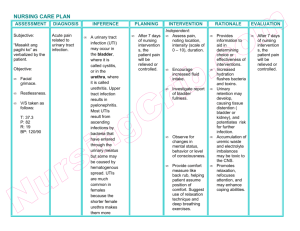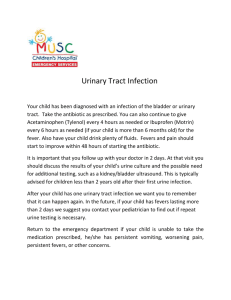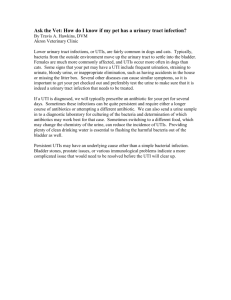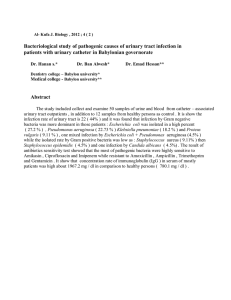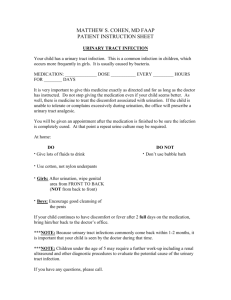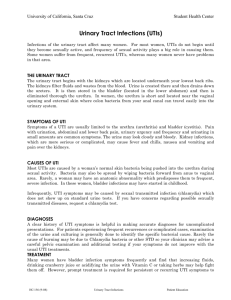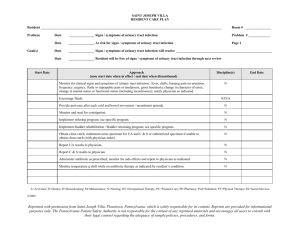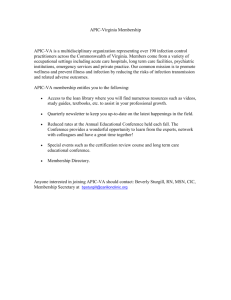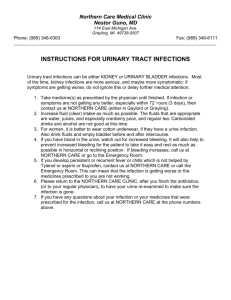INSTRUCTION SHEET: URINARY TRACT INFECTION University of North Carolina Wilmington
advertisement
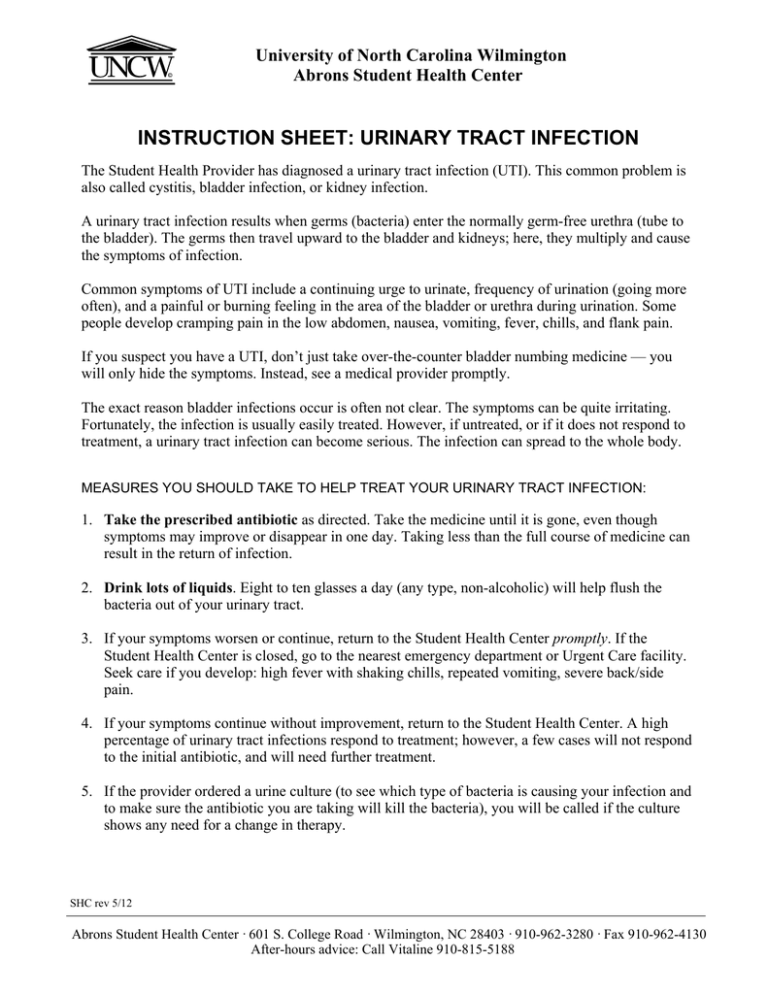
University of North Carolina Wilmington Abrons Student Health Center INSTRUCTION SHEET: URINARY TRACT INFECTION The Student Health Provider has diagnosed a urinary tract infection (UTI). This common problem is also called cystitis, bladder infection, or kidney infection. A urinary tract infection results when germs (bacteria) enter the normally germ-free urethra (tube to the bladder). The germs then travel upward to the bladder and kidneys; here, they multiply and cause the symptoms of infection. Common symptoms of UTI include a continuing urge to urinate, frequency of urination (going more often), and a painful or burning feeling in the area of the bladder or urethra during urination. Some people develop cramping pain in the low abdomen, nausea, vomiting, fever, chills, and flank pain. If you suspect you have a UTI, don’t just take over-the-counter bladder numbing medicine — you will only hide the symptoms. Instead, see a medical provider promptly. The exact reason bladder infections occur is often not clear. The symptoms can be quite irritating. Fortunately, the infection is usually easily treated. However, if untreated, or if it does not respond to treatment, a urinary tract infection can become serious. The infection can spread to the whole body. MEASURES YOU SHOULD TAKE TO HELP TREAT YOUR URINARY TRACT INFECTION: 1. Take the prescribed antibiotic as directed. Take the medicine until it is gone, even though symptoms may improve or disappear in one day. Taking less than the full course of medicine can result in the return of infection. 2. Drink lots of liquids. Eight to ten glasses a day (any type, non-alcoholic) will help flush the bacteria out of your urinary tract. 3. If your symptoms worsen or continue, return to the Student Health Center promptly. If the Student Health Center is closed, go to the nearest emergency department or Urgent Care facility. Seek care if you develop: high fever with shaking chills, repeated vomiting, severe back/side pain. 4. If your symptoms continue without improvement, return to the Student Health Center. A high percentage of urinary tract infections respond to treatment; however, a few cases will not respond to the initial antibiotic, and will need further treatment. 5. If the provider ordered a urine culture (to see which type of bacteria is causing your infection and to make sure the antibiotic you are taking will kill the bacteria), you will be called if the culture shows any need for a change in therapy. SHC rev 5/12 Abrons Student Health Center · 601 S. College Road · Wilmington, NC 28403 · 910-962-3280 · Fax 910-962-4130 After-hours advice: Call Vitaline 910-815-5188
